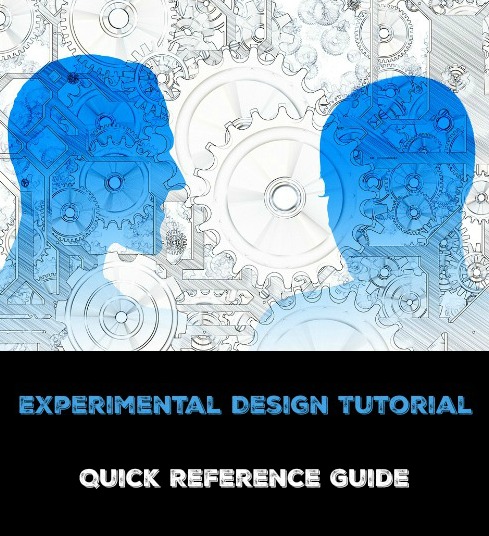Experimental Design Tutorial: Quick Reference Guide
This quick reference guide outlines some of the key experimental design concepts that you need to be aware of during your time as a psychology student. The guide is designed to used in conjunction with an easy to follow experimental design tutorial.
EXPERIMENTAL HYPOTHESIS (H1)
The prediction of the outcome of the experiment
ONE-TAILED EXPERIMENTAL HYPOTHESIS
Predicts the way that behavior will change
TWO-TAILED EXPERIMENTAL HYPOTHESIS
Simply states that the behavior will change
NULL HYPOTHESIS (H0)
Simply states that any observed differences between groups were down to chance.
INDEPENDENT VARIABLE (IV)
The one factor that is different between the conditions
DEPENDENT VARIABLE (DV)
The aspect of behavior that is measured
EXTRANEOUS VARIABLE
Anything, other than the IV that might have had an effect on the result of the experiment.
CONFOUNDING VARIABLE
An extraneous variable that does effect the result of the experiment. In doing so, it becomes impossible to say whether any difference found was due to the IV or the confounding variable.
INDEPENDENT SUBJECTS DESIGN
Some subjects perform in experimental condition and others in control condition.
REPEATED MEASURES DESIGN
All subjects perform in both experimental condition and control condition
MATCHED PAIRS DESIGN
As a result of a pre-test subjects are sorted into pairs. One of the pair performs in the experimental condition and the other performs in the control.
ORDER EFFECTS
If a participant has to perform a series of actions, the order in which she/he performs them will have an effect on the efficiency of each action. The two main order effects are practice (increases efficiency) and fatigue (decreases efficiency).
COUNTERBALANCING
Employed to ensure that order effects have an equal effect by alternating the conditions.
Recent Articles
-
Psychological Impact of Catastrophic Injury & Recovery
Feb 17, 26 02:26 AM
Explore the psychological impact of catastrophic injury, including trauma, identity shifts, resilience, and long-term mental health recovery. -
Psychology Articles by David Webb
Feb 10, 26 06:31 AM
Discover psychology articles by David Webb, featuring science-based insights into why we think, feel, and behave the way we do. -
Music and Memory: How Songs Shape Identity, Emotion, and Life Stories
Feb 10, 26 06:25 AM
How music and memory intertwine to preserve identity, evoke emotion, and anchor life stories. A psychological look at playlists, nostalgia, and the brain.
Go To The Experimental Design Tutorial Page




New! Comments
Have your say about what you just read! Leave me a comment in the box below.